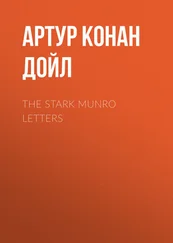Артур Дойл - The Firm of Girdlestone
Здесь есть возможность читать онлайн «Артур Дойл - The Firm of Girdlestone» — ознакомительный отрывок электронной книги совершенно бесплатно, а после прочтения отрывка купить полную версию. В некоторых случаях можно слушать аудио, скачать через торрент в формате fb2 и присутствует краткое содержание. Жанр: foreign_antique, foreign_prose, на английском языке. Описание произведения, (предисловие) а так же отзывы посетителей доступны на портале библиотеки ЛибКат.
- Название:The Firm of Girdlestone
- Автор:
- Жанр:
- Год:неизвестен
- ISBN:нет данных
- Рейтинг книги:4 / 5. Голосов: 1
-
Избранное:Добавить в избранное
- Отзывы:
-
Ваша оценка:
- 80
- 1
- 2
- 3
- 4
- 5
The Firm of Girdlestone: краткое содержание, описание и аннотация
Предлагаем к чтению аннотацию, описание, краткое содержание или предисловие (зависит от того, что написал сам автор книги «The Firm of Girdlestone»). Если вы не нашли необходимую информацию о книге — напишите в комментариях, мы постараемся отыскать её.
The Firm of Girdlestone — читать онлайн ознакомительный отрывок
Ниже представлен текст книги, разбитый по страницам. Система сохранения места последней прочитанной страницы, позволяет с удобством читать онлайн бесплатно книгу «The Firm of Girdlestone», без необходимости каждый раз заново искать на чём Вы остановились. Поставьте закладку, и сможете в любой момент перейти на страницу, на которой закончили чтение.
Интервал:
Закладка:
Even matches between prominent local clubs excite much interest in Edinburgh and attract crowds of spectators. How much more then when the pick of the manhood of Scotland were to try their strength against the very cream of the players from the South of the Tweed. The roads which converged on the Raeburn Place Grounds, on which the match was to be played, were dark with thousands all wending their way in one direction. So thick was the moving mass that the carriage of the Dimsdale party had to go at a walk for the latter half of the journey, In spite of the objurgations of the driver, who, as a patriot, felt the responsibility which rested upon him in having one of the team in his charge, and the necessity there was for delivering him up by the appointed time. Many in the crowd recognized the young fellow and waved their hands to him or called out a few words of encouragement. Miss Kate Harston and even the doctor began to reflect some of the interest and excitement which showed itself on every face around them. The youth alone seemed to be unaffected by the general enthusiasm, and spent the time in endeavouring to explain the principles of the game to his fair companion, whose ignorance of it was comprehensive and astounding.
"You understand," he said, "that there are fifteen players on each side. But it would not do for the whole of these fifteen men to play in a crowd, for, in that case, if the other side forced the ball past them, they would have nothing to fall back upon – no reserves, as it were. Therefore, as we play the game in Scotland, ten men are told off to play in a knot. They are picked for their weight, strength, and endurance. They are called the forwards, and are supposed to be always on the ball, following it everywhere, never stopping or tiring. They are opposed, of course, by the forwards of the other side. Now, immediately behind the forwards are the two quarter-backs. They should be very active fellows, good dodgers and fast runners. They never join in the very rough work, but they always follow on the outskirts of the forwards, and if the ball is forced past it is their duty to pick it up and make away with it like lightning. If they are very fast they may succeed in carrying it a long way before they are caught – 'tackled,' as we call it. It is their duty also to keep their eye on the quarter-backs of the enemy, and to tackle them if they get away. Behind them again are the two half-backs – or 'three-quarters,' as they call them in England. I am one of them. They are supposed to be fast runners too, and a good deal of the tackling comes to their lot, for a good runner of the other side can often get past the quarters, and then the halves have got to bring him down. Behind the half-backs is a single man – the back. He is the last resource when all others are past. He should be a sure and long kicker, so as to get the ball away from the goal by that means – but you are not listening."
"Oh yes, I am," said Kate. As a matter of fact the great throng and the novel sights were distracting her so much that she found it hard to attend to her companion's disquisition.
"You'll understand it quickly enough when you see it," the student remarked cheerily. "Here we are at the grounds."
As he spoke the carriage rattled through a broad gateway into a large open grassy space, with a great pavilion at one side of it and a staked enclosure about two hundred yards long and a hundred broad, with a goal-post at each end. This space was marked out by gaily coloured flags, and on every side of it, pressing against the barrier the whole way round, was an enormous crowd, twenty and thirty deep, with others occupying every piece of rising ground or coign of vantage behind them. The most moderate computation would place the number of spectators at fifteen thousand. At one side there was a line of cabs in the background, and thither the carriage of the Dimsdales drove, while Tom rushed off with his bag to the pavilion to change.
It was high time to do so, for just as the carriage took up its position a hoarse roar burst from the great multitude, and was taken up again and again. It was a welcome to the English team, which had just appeared upon the ground. There they were, clad in white knickerbockers and jerseys, with a single red rose embroidered upon their breasts; as gallant-looking a set of young fellows as the whole world could produce. Tall, square-shouldered, straight-limbed, as active as kittens and as powerful as young bullocks, it was clear that they would take a lot of beating. They were the pick of the University and London clubs, with a few players from the northern counties; not a man among them whose name was not known wherever football was played. That tall, long-legged youth is Evans, the great half-back, who is said to be able to send a drop-kick further than any of his predecessors in the annals of the game. There is Buller, the famous Cambridge quarter, only ten stone in weight, but as lithe and slippery as an eel; and Jackson, the other quarter, is just such another – hard to tackle himself, but as tenacious as a bulldog in holding an adversary. That one with the straw-coloured hair is Coles, the great forward; and there are nine lads of metal who will stand by him to-day through thick and thin. They were a formidable-looking lot, and betting, which had been five on four to them in the morning, showed symptoms of coming to five to three. In the meantime, by no means abashed at finding themselves the cynosure of so many eyes, the Englishmen proceeded to keep up their circulation by leap-frog and horse-play, for their jerseys were thin and the wind bleak.
But where were their adversaries? A few impatient moments slowly passed, and then from one corner of the ground there rose a second cheer, which rippled down the long line of onlookers and swelled into a mighty shout as the Scotchmen vaulted over the barrier into the arena. It was a nice question for connoisseurs in physical beauty as to which team had the best of it in physique. The Northerners in their blue jerseys, with a thistle upon their breasts, were a sturdy, hard-bitten lot, averaging a couple of pounds more in weight than their opponents. The latter were, perhaps, more regularly and symmetrically built, and were pronounced by experts to be the faster team, but there was a massive, gaunt look about the Scotch forwards which promised well for their endurance. Indeed, it was on their forwards that they principally relied. The presence of three such players as Buller, Evans, and Jackson made the English exceptionally strong behind, but they had no men in front who were individually so strong and fast as Miller, Watts, or Grey. Dimsdale and Garraway, the Scotch half-backs, and Tookey, the quarter, whose blazing red head was a very oriflamme wherever the struggle waxed hottest, were the best men that the Northerners could boast of behind.
The English had won the choice of goals, and elected to play with what slight wind there was at their backs. A small thing may turn the scale between two evenly balanced teams. Evans, the captain, placed the ball in front of him upon the ground, with his men lined all along on either side, as eager as hounds in leash. Some fifty yards in front of him, about the place where the ball would drop, the blue-vested Scots gathered in a sullen crowd. There was a sharp ring from a bell, a murmur of excitement from the crowd. Evans took two quick steps forward, and the yellow ball flew swift and straight, as if it had been shot from a cannon, right into the expectant group in front of him.
For a moment there was grasping and turmoil among the Scotchmen. Then from the crowd emerged Grey, the great Glasgow forward, the ball tucked well under his arm, his head down, running like the wind, with his nine forwards in a dense clump behind him, ready to bear down all opposition, while the other five followed more slowly, covering a wider stretch of ground. He met the Englishmen who had started full cry after the ball the moment that their captain had kicked it. The first hurled himself upon him. Grey, without slackening his pace, swerved slightly, and he missed him. The second he passed in the same way, but the third caught quickly at his legs, and the Scot flew head over heels and was promptly collared. Not much use collaring him now! In the very act of falling he had thrown the ball behind him. Gordon, of Paisley, caught it and bore it on a dozen yards, when he was seized and knocked down, but not before he had bequeathed his trust to another, who struggled manfully for some paces before he too was brought to the ground. This pretty piece of "passing" had recovered for the Scotch all the advantage lost by the English kick-off, and was greeted by roars of applause from the crowd.
Читать дальшеИнтервал:
Закладка:
Похожие книги на «The Firm of Girdlestone»
Представляем Вашему вниманию похожие книги на «The Firm of Girdlestone» списком для выбора. Мы отобрали схожую по названию и смыслу литературу в надежде предоставить читателям больше вариантов отыскать новые, интересные, ещё непрочитанные произведения.
Обсуждение, отзывы о книге «The Firm of Girdlestone» и просто собственные мнения читателей. Оставьте ваши комментарии, напишите, что Вы думаете о произведении, его смысле или главных героях. Укажите что конкретно понравилось, а что нет, и почему Вы так считаете.












